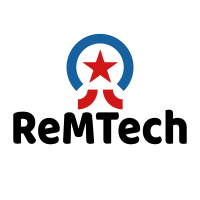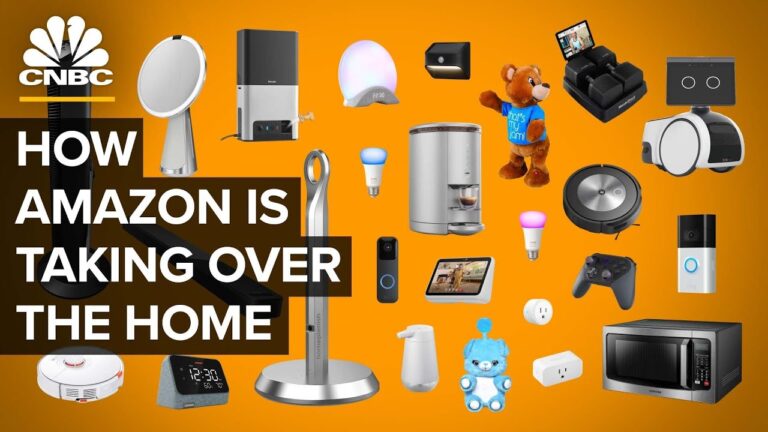Introduction
Amazon has established itself as a giant in the world of e-commerce, cloud computing, and smart home technology. The company’s foray into the smart home industry has been nothing short of remarkable, offering a range of devices and services designed to make our homes more connected and convenient. One of the intriguing developments in this space is Amazon’s interest in acquiring iRobot, the company behind the popular Roomba vacuum cleaners. In this article, we will explore how Amazon has dominated the smart home market and why it might be interested in purchasing iRobot.
Amazon’s Smart Home Dominance
- Echo and Alexa: Amazon’s Echo devices, powered by its virtual assistant Alexa, have been instrumental in establishing Amazon’s presence in the smart home ecosystem. These voice-activated devices can control various smart home appliances, answer questions, and provide information. With millions of Echo devices sold, Amazon has effectively woven itself into the fabric of smart homes worldwide.
- Ring: Amazon’s acquisition of Ring, the video doorbell and home security company, was a strategic move that allowed the company to enter the home security and surveillance market. Ring’s products, coupled with Amazon’s Alexa integration, enable homeowners to monitor their properties easily.
- Amazon Basics: Amazon has introduced its own line of smart home devices, known as Amazon Basics. These products range from smart plugs to smart light bulbs, making it easier for consumers to create a connected home environment using Amazon-branded devices.
- Smart Home Integration: Amazon has forged partnerships and collaborations with other smart home device manufacturers, allowing Alexa to integrate with a wide range of third-party products. This approach promotes compatibility and interoperability, which is crucial for a seamless smart home experience.
Learn How How Amazon Dominates Smart Home & why it Wants to buy iRobot?
Amazon ships more U.S. smart home devices than any other company and says Alexa is now compatible with 140,000 devices, far beyond the Echo and Fire TV. But privacy advocates are concerned by all the data these devices collect, and are calling on the Federal Trade Commission to block Amazon’s latest smart home expansion. After acquiring video doorbell maker Ring in 2018 and mesh WiFi system Eero a year later, Amazon’s now looking to buy Roomba smart vacuum maker iRobot. In a rare move, the FTC is asking for more information before approving the $1.7 billion deal. Ahead of Amazon’s annual smart home event, we talked to Amazon’s VP of privacy to find out what really happens to all the data collected by its devices – and sat down with the head of smart home to hear the strategy behind Amazon’s race to dominate the internet of things.
CNBC
Why Amazon Wants iRobot
- Expanding Product Portfolio: iRobot is known for its Roomba robotic vacuum cleaners, which are popular choices for automated cleaning in households. By acquiring iRobot, Amazon can diversify its product portfolio, offering customers a broader range of smart home solutions.
- Home Mapping Technology: iRobot has invested significantly in home mapping technology, which enables its devices to navigate and clean homes efficiently. This technology could have applications beyond vacuuming, such as improving the capabilities of other smart devices like delivery robots or autonomous home assistants.
- Customer Data: iRobot collects data on the layout and dimensions of users’ homes to improve its devices’ performance. Amazon could leverage this data to enhance its understanding of customers’ home environments, potentially leading to better product recommendations and improved smart home integration.
- Robotic Expertise: iRobot’s experience in robotics could be valuable for Amazon’s long-term goals, which may include the development of more advanced home robots. The company could explore new markets beyond vacuum cleaners and extend its presence in the robotics industry.
- Competition with Rivals: In the competitive smart home landscape, Amazon faces strong competition from companies like Google (with its Nest products) and Apple. Acquiring iRobot could provide Amazon with a strategic advantage, reinforcing its position as a dominant player in the smart home sector.
Conclusion
Amazon’s dominance in the smart home market is the result of a strategic approach that combines a variety of devices, services, and partnerships under the Alexa ecosystem. With the potential acquisition of iRobot, Amazon aims to further solidify its presence in the smart home space, expand its product range, and tap into iRobot’s expertise in robotics and home mapping technology. While the deal’s outcome is uncertain, the move demonstrates Amazon’s commitment to remaining at the forefront of the rapidly evolving smart home industry.


